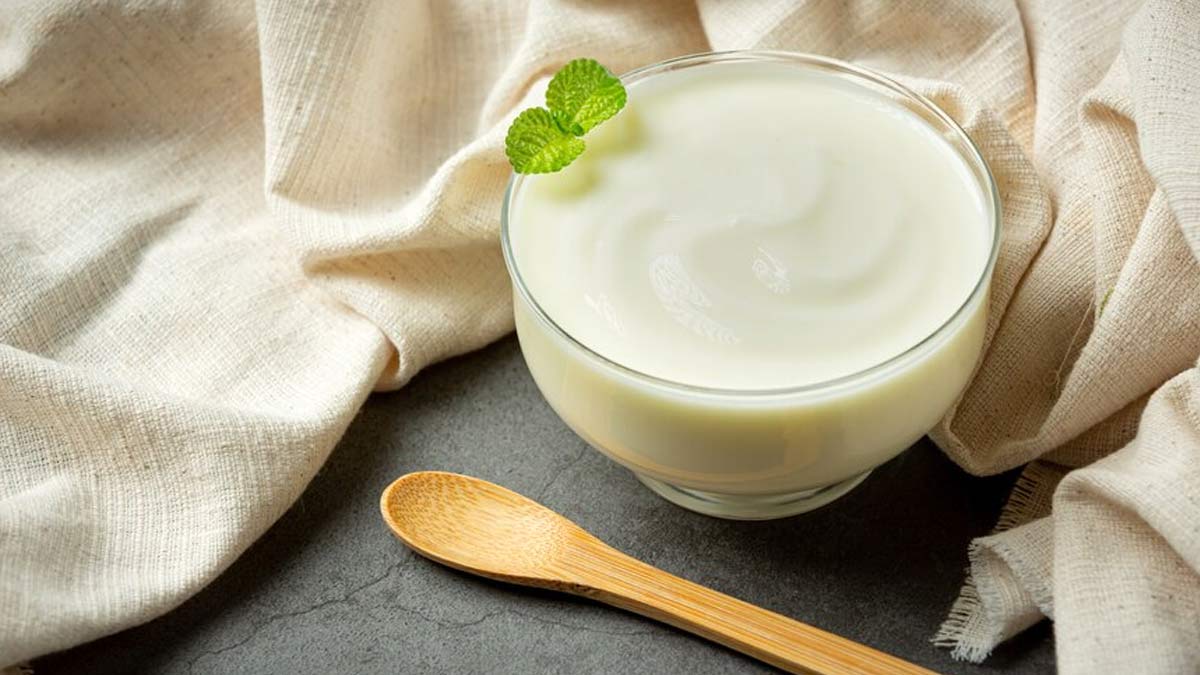
When it's cold in winter, what you eat is important for staying healthy and keeping your immune system strong. Having seasonal foods can nourish your health and keep diseases at bay. But what about eating foods, such as curd? It is a winter-friendly addition and a versatile dairy product that brings not only culinary delight but also a myriad of health benefits. We spoke to Dr Archana Batra, Nutritionist, Physiotherapist, and Certified Diabetes Educator, Gurgaon, who explained the benefits of consuming curd in winter.
Table of Content:-
Benefits Of Consuming Curd In Winter

Nutrient-Rich Powerhouse
Curd is a nutritional powerhouse, rich in essential nutrients like calcium, phosphorus, potassium, and B vitamins. “These nutrients are crucial for maintaining bone health, supporting the nervous system, and enhancing overall vitality. In winter, when outdoor activities might decrease, curd becomes an excellent source of these vital elements”, informed Dr Batra.
Probiotics for Gut Health
Curd is fermented, giving rise to beneficial probiotics that promote a healthy gut. “In the winter season, when the risk of infections is higher, a robust digestive system becomes a frontline defence. Probiotics in curd aid in maintaining a balance of gut bacteria and potentially reducing the likelihood of falling prey to winter ailments”, added Dr Batra.
Warming Properties
Dr Batra highlighted, “In ayurveda, curd is considered to have ‘ushna’ or warming properties. During the colder months, incorporating warm foods into your diet is beneficial to maintain body temperature.” While consuming curd, it is advisable to ensure it is at room temperature or slightly warm to align with the body’s needs in winter.

Boosting Immunity
The probiotics in curd also contribute to immune system modulation. A strong immune system is paramount during winters when the body is more susceptible to colds and flu. Regular consumption of curd can enhance the body’s ability to fight off infections and keep seasonal illnesses at bay.
Balancing the Doshas
Ayurveda also suggests that curd has the potential to balance the ‘vata’ dosha, which tends to be aggravated during winter. By including curd in your diet, you may help stabilise this dosha, promoting overall well-being and reducing the risk of imbalances associated with the winter season.
According to the World Journal Of Pharmaceutical Research, certain foods, such as milk, radish, melon, and others—should never be eaten with curd because they are incompatible, difficult to digest together, and may cause allergic reactions. It is never advisable to cook curd since the bacteria cannot tolerate the high temperature.
Also Read: Jaggery Tea In Winter: Expert Explains How It Benefits Your Health In Colder Months
Moderation is Key
Dr Batra advises, “While curd offers numerous health benefits, moderation is essential. Excessive consumption, especially in individuals with lactose intolerance, may lead to digestive discomfort. It’s advisable to consult with a healthcare professional or nutritionist to determine the ideal amount based on individual health conditions.”
Bottomline
Dr Batra concluded, “Adding curd into your winter diet can be a delightful and health-conscious choice. From providing essential nutrients to supporting gut health and boosting immunity, curd emerges as a versatile ally in the pursuit of winter wellness. Enjoy eating it and make the most of the season for a healthier and happier you.”
[Disclaimer: This article contains information provided by a registered healthcare professional and is for informational purposes only. Hence, we advise you to consult your dietician before adding anything to your diet, especially if you are dealing with any health issues.]
Also watch this video
How we keep this article up to date:
We work with experts and keep a close eye on the latest in health and wellness. Whenever there is a new research or helpful information, we update our articles with accurate and useful advice.
Current Version